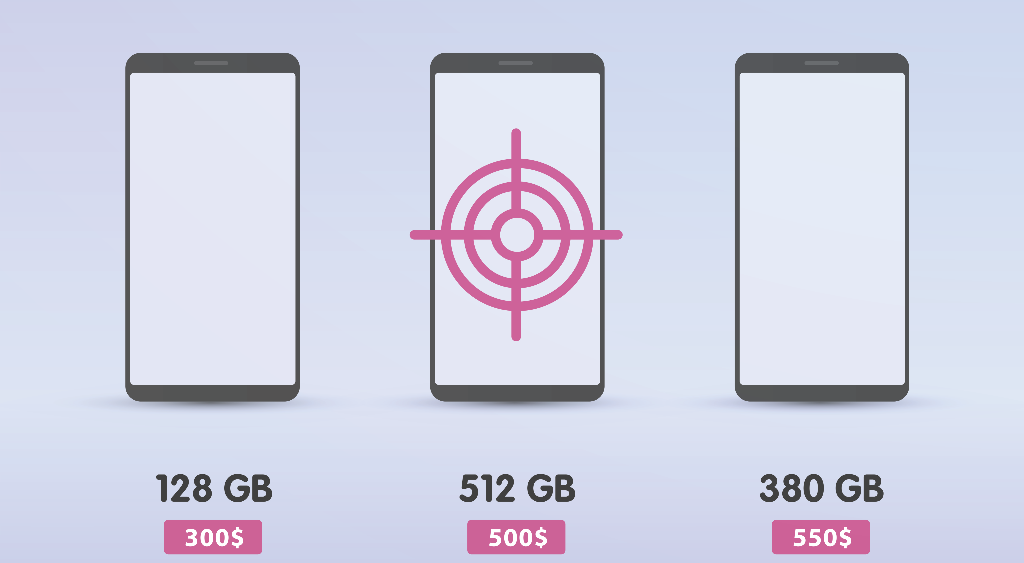Common Mind Tricks Companies Use to Increase Sales

- As a company’s main goal is to make money, they begin implementing psychological tricks into their marketing strategies to increase sales.
- Below is a list of companies' most common marketing strategies that have caused more purchases.
- Alongside the definition of each marketing tactic, examples are also listed to give you a real-life example of how these strategies are utilized.
A company’s main objective is to make money. Companies use an abundance of various marketing strategies and psychological tricks to cause an increase in consumer purchases.
Unfortunately, these marketing tactics typically cause impulse buys which benefit the company and negatively impact the consumer. As a result, it is important to realize what mind tricks are employed by companies, so the psychological effect they may have on you is lower.
Recommended Read: How to Stop Impulsing Buying
Baader Meinhof Phenomenon
The Baader Meinhof Phenomenon, otherwise known as the frequency illusion, is a marketing technique used by companies that aims to increase consumer spending by making the illusion that their products are very popular. As many wish to have the newest gadgets or the latest fad, companies try to play to this psychological behavior by putting their products in multiple parts of different stores.
Consequently, when a consumer sees the same product repeatedly, they begin thinking that the promoted product is very popular and in demand, leading to them purchasing the marketed item. For example, when fidget spinners were becoming popular, they were put in nearly every store which caused many people to purchase them. As they were increasing in popularity, many people began purchasing these items as they wanted to be a part of the trend.

Image Credit: VectorMine / Shutterstock.com
Loss Aversion
The loss aversion tactic’s purpose is to target a negative concept, which can bring displeasure to a customer, but then provide them with a positive solution at a lower price now versus if they were to wait and purchase the same product at a later date.
One common way loss aversion is utilized in the real world is through the marketing ads promoted on social media. These companies and individuals try to sell their courses regarding their area of expertise and explain how their course, at a small cost, can be extremely beneficial to the consumer. They begin by discussing how if a consumer were to indulge in the marketer’s area of expertise on their own; they would struggle and lose their money, making the consumer inclined to purchase their service.
Recommended Read: How to Boost Your Mood and Money
Loss aversion kicks in as the possibility of failure, and a large sum of money lost leads to some consumers caving and ultimately purchasing their course. Also, to expedite sales, businesses mention that their course is on sale to pressure the consumer into buying their advertised product at a discount. Lastly, to make the product more appealing, sometimes these sellers offer a free trial period, ranging from a week to 30 days.

Image Credit: Piscine26 / Shutterstock.com
Decoy Effect
One of the most common techniques utilized by companies is the decoy effect. The decoy effect is when a company offers a product or service at a high price and provides a more inclusive option at a slightly higher price. Therefore, when customers see the two options side by side, they are more likely to go with the more inclusive option as it provides a better value for an incrementally higher price.
One famous example of this marketing technique can be seen in the movies. For example, the theater is offering a small popcorn (500g) for $5, a medium (750g) for $10, and a large (1kg) for $12. Usually, when seeing the size comparisons, customers lean towards purchasing the large option as it is an incrementally higher price tag but provides more value due to its much larger size. As a result, this simple yet effective trick helps movie theaters bring in extra revenue.

BestForBest / Shutterstock.com
Social Validation
Social validation is a technique used by companies where they utilize social proof to demonstrate the popularity and effectiveness of their product. For example, if someone wishes to purchase a tech gadget such as a computer, they will scour various websites to find one that matches their budget.
Once a couple of choices have been shortlisted, people turn to reviews left by previous owners to determine whether the item they are looking for is of quality and worth the price. Sometimes, companies may revert to writing fake reviews about a product's or service's many benefits, which can mislead consumers into purchasing something of inferior quality.
Therefore, to prevent you from being misled and purchasing the wrong item, try to ensure the reviews are from verified purchases, as those posts will most likely contain accurate, unbiased information.
How to Outsmart These Psychological Tricks
As mentioned before, these tricks' main purpose is to increase sales. By becoming aware of the standard psychological techniques used by companies, it is harder for them to manipulate your emotions and sway your decision. The best way to not fall into these traps is by knowing what you are looking to purchase before entering a physical or virtual store.
The Money Wrap-Up
As most of these techniques focus on increasing impulsive purchases, having a shopping list of what you want to purchase will make it more difficult for companies to use their psychological tricks against you successfully.
Main Image Credit: TrifonenkoIvan / Shutterstock.com